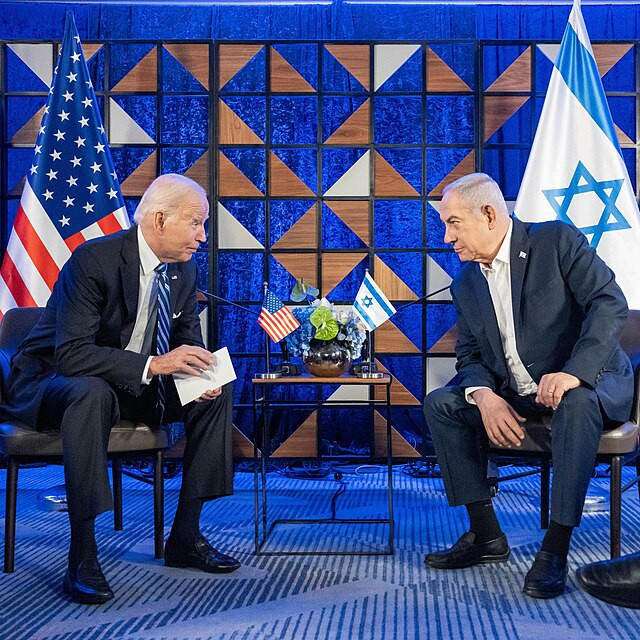President Joe Biden's sharp critique of Israeli Prime Minister Benjamin Netanyahu for not doing enough to secure the release of hostages has ignited a firestorm of criticism. This backlash highlights growing frustrations with U.S. diplomacy and its perceived imbalance in pressuring both Israeli and Palestinian factions amid ongoing ceasefire negotiations.
On Monday, Biden responded tersely to a query about Netanyahu's role in the hostage crisis, stating flatly, "No." This remark came as the president and Vice President Kamala Harris convened with their negotiating team following the recent murder of six hostages, including Israeli-American Hersh Goldberg-Polin, by Hamas.
Netanyahu, facing mounting international and domestic pressure, rejected accusations that his government bore responsibility for the hostages' deaths. "We didn't manage to extricate them. We were very close. It's terrible," Netanyahu said. He attributed the failure to secure the hostages to Hamas's refusal to negotiate, emphasizing Israel's strategic need to maintain a military presence in the Philadelphi Corridor, a critical smuggling route on Gaza's border with Egypt.
The White House Press Secretary Karine Jean-Pierre defended Biden's stance, asserting, "The president has been very, very clear about Hamas leaders and what they have done." Despite this, the emphasis on Netanyahu rather than Hamas has drawn sharp criticism from various quarters.
Caroline Glick, a former adviser to Netanyahu, argued that U.S. pressure has been disproportionately applied to Israel. "From the outset of the war, U.S. pressure has been exerted on Israel alone," Glick told Fox News Digital. She suggested that U.S. demands for Israel to keep Gaza supplied with humanitarian aid have inadvertently bolstered Hamas's position rather than undermining it.
The criticism intensified following the execution of the hostages, which sparked massive protests across Israel. Demonstrators have rallied in Tel Aviv and other cities, with reports suggesting that up to 300,000 people took to the streets. The Histadrut labor union also initiated a general strike, further pressuring Netanyahu to reach a deal with Hamas.
Former U.S. Ambassador to Israel David Friedman condemned Biden's approach, stating, "On a day when Israel is mourning... Biden should be saving his criticism for Hamas, Hezbollah, and Iran, not Israel's democratically elected leader." Friedman criticized the administration's handling of the conflict, alleging that Biden and Harris have been "catastrophically weak" in their responses.
Meanwhile, U.S. Secretary of State Antony Blinken noted that Netanyahu had previously agreed to key elements of a ceasefire proposal. However, Hamas's leadership remains a significant obstacle. The Israeli government contends that Hamas's refusal to make concessions continues to thwart progress.
Aviva Siegel, a former Hamas hostage, voiced her frustration with both the Israeli and U.S. governments. "I want Keith back alive," Siegel said, referring to her husband, who remains in Hamas captivity. She criticized the lack of effective action to secure the release of hostages, calling for global awareness and intervention.
Joel Rubin, a former deputy assistant secretary of state, defended Biden's support for Israel, noting that it aligns with broader U.S. policy against terrorism. Rubin emphasized that while a diplomatic deal remains the most viable path to securing the release of hostages, it should not be seen as an endorsement of Hamas.






